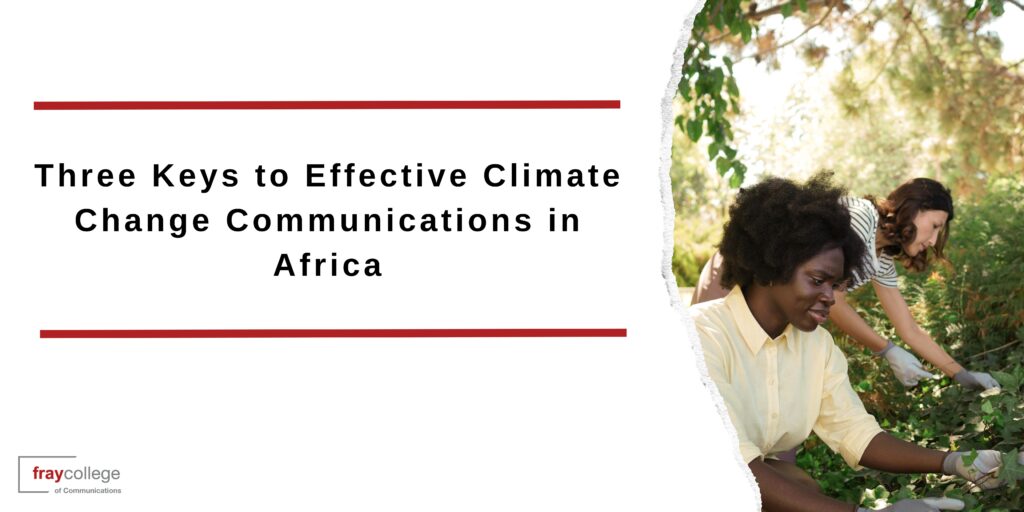
Climate change communication is critical in Africa, where over 110 million people are directly affected by climate-related hazards. Despite contributing less than 10% of global greenhouse gas emissions, the continent faces disproportionate harm, with 5 of the most affected countries located here. Clear, effective communication on climate change has never been more important than it is now.
Recognising this need for effective climate change communication, fraycollege has worked with various stakeholders to provide training in this area. Our CEO, Mamaponya Motsai, shares in this article three key insights into climate change communications for Africa.
1. Collaborations between different sectors is necessary:
Climate change is a multifaceted issue that impacts various aspects of society, including the environment, economy, public health, and social equity. If climate change communication on the African continent is to be impactful and effective, sectors such as government, research institutions, academia, civil society, businesses and media must work together. Collaboration between the sectors will enable us to reach all Africans consistently with the right information .
2. Community engagement should be at the forefront of addressing climate change challenges:
Local communities are often at the forefront of experiencing the impacts of climate change, such as extreme weather events and agricultural disruptions. Therefore, empowering these communities to actively participate in finding solutions is pivotal. By involving community members in decision-making processes and creating strategies tailored to their needs, greater impact can be achieved. This approach not only enhances the effectiveness of climate communications but also cultivates a sense of collective responsibility and solidarity in tackling the climate crisis across Africa.
3. Reframe climate change in Africa as a solution to addressing existing challenges:
As mentioned earlier, Africa suffers disproportionately from the effects of climate change and these effects exacerbate the numerous socio-economic challenges the continent faces. These challenges include food scarcity, lack of access to clean water, health and high employment. Through efforts such as using clean energy, farming smarter, and managing water better to fight climate change, we can also fix these problems. Climate change communication, therefore, should focus on communities understanding that Africa can simultaneously tackle climate change and address longstanding issues.
To find out more about our climate change communications courses or to be part of our climate change in Africa communications network, email : admin@fraycollege.com.
